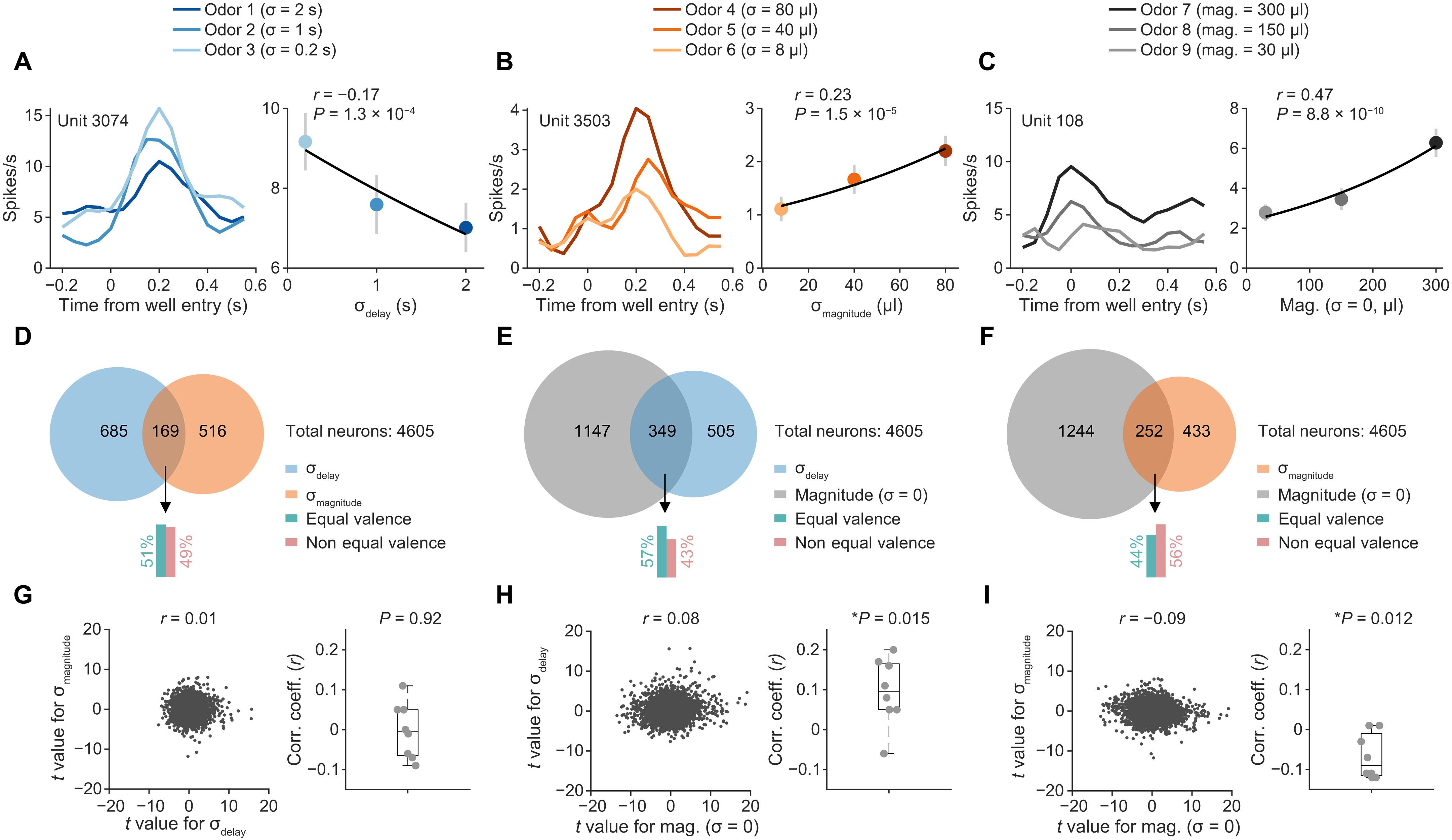Adaptive reward representations integrate expected uncertainty signals in orbitofrontal cortex
IF 12.5
1区 综合性期刊
Q1 MULTIDISCIPLINARY SCIENCES
引用次数: 0
Abstract
Incorporating expected uncertainty into reward evaluation is critical for adaptive learning and behavior. The orbitofrontal cortex (OFC) represents reward attributes, such as delay and magnitude, alongside expected uncertainties about upcoming rewards, serving its established role in both value- and risk-based behaviors. However, the cellular basis of how reward and uncertainty interact remains unclear. To investigate, we trained rats on a task where odor cues predicted sucrose rewards with varying uncertainties in delay or magnitude. Single-unit recordings revealed that many OFC neurons encoded expected uncertainties related to reward delay or magnitude. Population-level analysis showed distinct neural codes for delay and magnitude uncertainties, separate from those for reward delay and magnitude. Signals for each reward attribute and associated uncertainty converged onto the same neurons, reducing the sensitivity of delay and magnitude encoding as uncertainty increased. These findings suggest a cellular-level computation in OFC neurons, whereby uncertainty signals are integrated into attribute-specific reward representations, potentially supporting flexible learning and risk control.

自适应奖励表征整合了眼窝额叶皮层预期的不确定性信号
将预期不确定性纳入奖励评估对适应性学习和行为至关重要。眼窝额叶皮层(OFC)代表奖励属性,如延迟和大小,以及对即将到来的奖励的预期不确定性,在基于价值和基于风险的行为中发挥既定作用。然而,奖励和不确定性如何相互作用的细胞基础仍不清楚。为了进行调查,我们训练老鼠完成一项任务,在这项任务中,气味线索预测了不同延迟或大小的不确定性蔗糖奖励。单单元记录显示,许多OFC神经元编码与奖励延迟或大小相关的预期不确定性。群体水平的分析显示,延迟和大小不确定性的神经编码与奖励延迟和大小的神经编码不同。每个奖励属性和相关不确定性的信号汇聚到相同的神经元上,随着不确定性的增加,延迟和幅度编码的敏感性降低。这些发现表明,在OFC神经元中存在细胞水平的计算,其中不确定性信号被整合到特定属性的奖励表征中,可能支持灵活的学习和风险控制。
本文章由计算机程序翻译,如有差异,请以英文原文为准。
求助全文
约1分钟内获得全文
求助全文
来源期刊

Science Advances
综合性期刊-综合性期刊
CiteScore
21.40
自引率
1.50%
发文量
1937
审稿时长
29 weeks
期刊介绍:
Science Advances, an open-access journal by AAAS, publishes impactful research in diverse scientific areas. It aims for fair, fast, and expert peer review, providing freely accessible research to readers. Led by distinguished scientists, the journal supports AAAS's mission by extending Science magazine's capacity to identify and promote significant advances. Evolving digital publishing technologies play a crucial role in advancing AAAS's global mission for science communication and benefitting humankind.
 求助内容:
求助内容: 应助结果提醒方式:
应助结果提醒方式:


